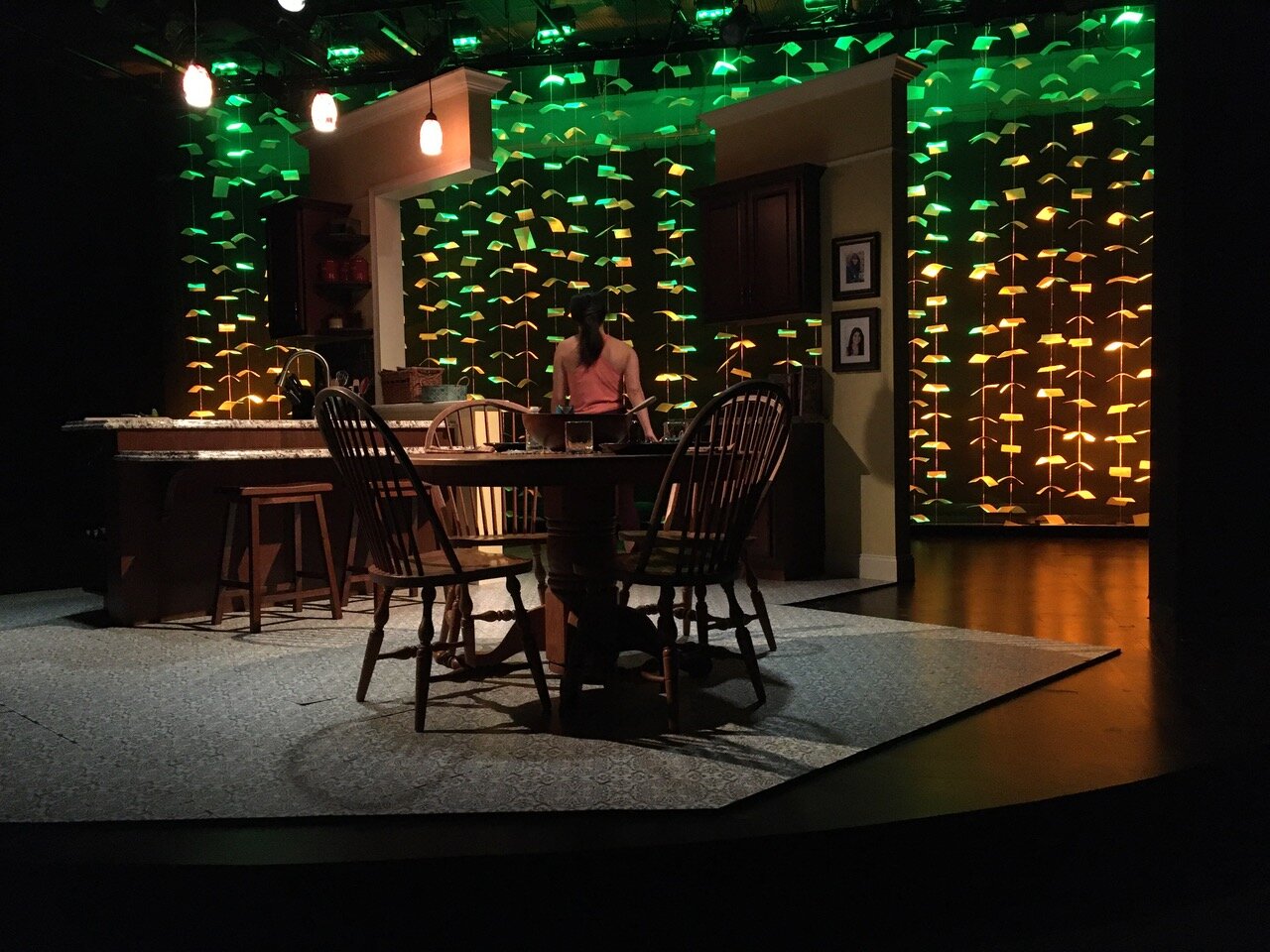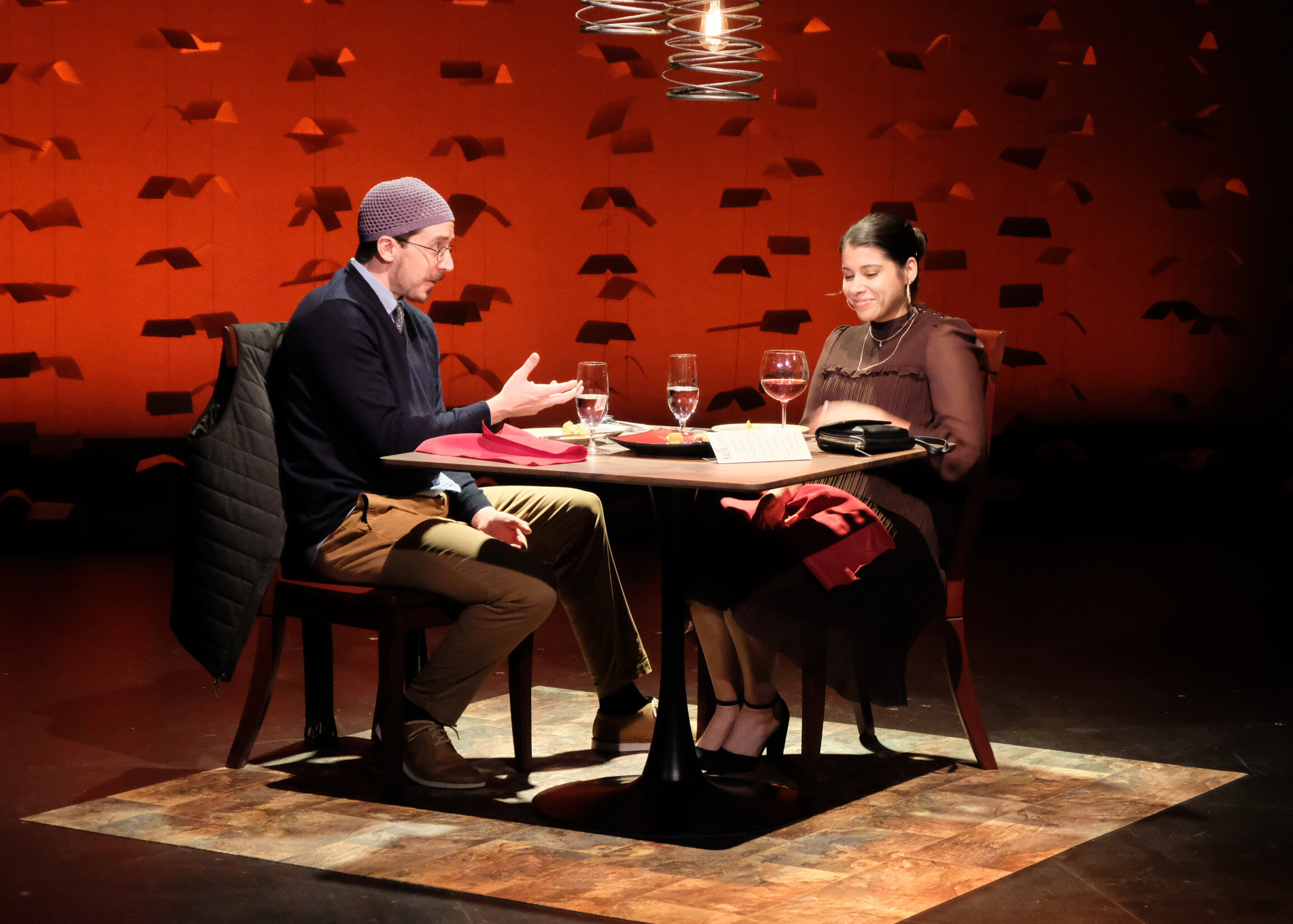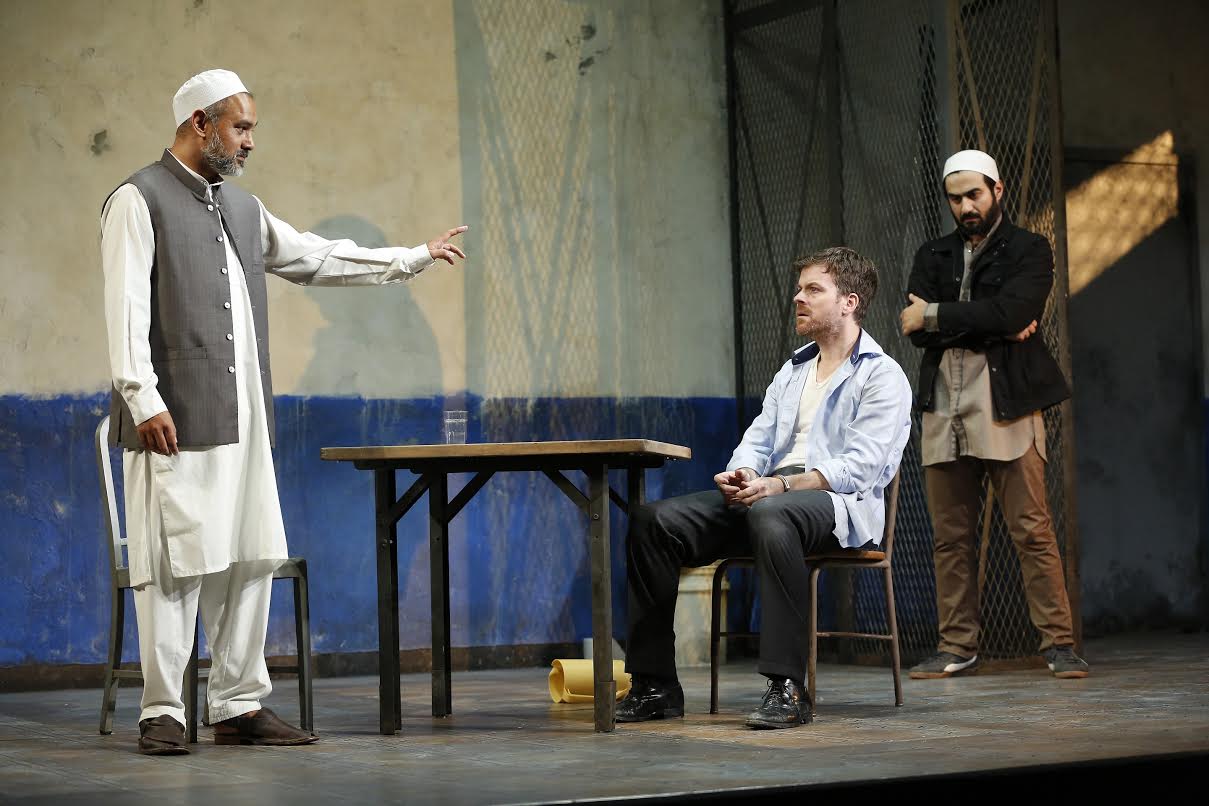The Who and the What, TheaterWorks
Ayad Akhtar writes plays in which dialogue has a way of being emotional, at times amusing, and often freighted with the weight of ideological themes. His plays Disgraced and The Invisible Hand both had powerful stagings in Connecticut, the latter at Westport Country Playhouse and at TheaterWorks in Hartford. Now TheaterWorks brings us The Who and the What, which dates from 2014.
Before discussing the play, a word about how the production is brought to its audience. Staged at TheaterWorks, directed by Aneesha Kudtarkar, the four-person play has been taped for online viewing with considerable skill. Which means credit for camera director Dan Garee and cinematographers Evan Olson and Ally Lenihan, S.R.’s sound design and the video production of Miceli Productions. If you’ve ever watched plays videotaped for television—which used to be a fairly common event—you’ll find the TheaterWorks production as capable and professional as most you may have seen. Except, instead of a soundstage in a studio, the play uses TheaterWorks’ stage, with set design by Brian Prather (adapted from Michael Schweikardt’s design), costumes by Mika Eubanks, and lighting by Amith Chandrashaker. It looks and sounds like a TheaterWorks show, viewed in one’s own home.
Mahwish (Sanam Laila Hashemi) in The Who and the What, by Ayad Akhtar, directed by Aneesha Kudtarkar, TheaterWorks
The play takes place in a few key locations, mostly domestic interiors and park benches, as Akhtar’s script covers several years in a succinct presentation of what could be called scenic highlights. The details of these characters’ lives could sustain much further explication but Akhtar is a playwright able to make exposition and backstory come out in the course of dialogue. It’s a method that lets each scene portray what is dramatically relevant to the story at hand. And the story has several dramatic cruxes.
To begin with, it’s the story of Afzal, a doting but also domineering Muslim father, played by Rajesh Bose with a wonderfully compelling sense of how bullying is often a matter of both sweetness and implied threat. He has two daughters, Zarina (Jessica Jain), the elder, and Mahwish (Sanam Laila Hashemi). Mahwish already has a fiancé approved by Afzal, so now his task is to find a mate for Zarina so she can marry before her younger sibling does. We later learn that Zarina did have a beau interested in marrying her but he was rejected by Afzal because he was a Christian.
Right there, of course, we’re in a conservative “old world” way of doing things, which we imagine will not sit well with daughters raised in America. Yet what interests Akhtar is how the twin engines of “modern” and “traditional” drive the contemporary Muslim family. The play opens with Afzal meeting with Eli (Stephen Elrod), a blind date for Zarina that Afzal has arranged by pretending to be Zarina in an online dating service! The fact that Eli, who sees this meeting as awkward if not grotesque, manages to deal with this romantic vetting in a way that doesn’t antagonize Afzal means that maybe he’s got son-in-law potential. And Afzal is at his charming best in his man-to-man chats with Eli. The tenor of such talks—after Eli does indeed become his son-in-law—never preclude Afzal’s sense of what is right for the couple and how his daughter needs to be handled so that her willfulness, as a modern woman, is properly “broken.”
Afzal is a widower who has become a success managing a fleet of cabs in Atlanta, and his great ambition is that his daughters start families of their own. His machinations to achieve that end, we might guess, will be the subject of the play as he offends against his daughters’ progressive views. To further that plot line, we hear that Zarina—Harvard educated with an MFA—is working on a book on gender politics. The scene where she has a first date with Eli, as a subservient gesture to her father, runs a potential minefield as Eli is white, a convert to Islam, and possibly more enthusiastic about the faith than Zarina herself. Which leads us to the main plot point: Zarina’s book isn’t simply critical of such practices as arranged marriages and wearing the hijab. It’s a novel in which the prophet Mohammad is viewed as a man with a man’s many imperfections and at times hurtful attitudes toward women.
Eli (Stephen Elrod) and Zarina (Jessica Jain) in Ayad Akhtar’s The Who and the What, directed by Aneesha Kudtarkar, TheaterWorks
The possible tensions between Eli and Zarina increase once he reads her manuscript, and their arguments about the portrayal of the prophet constitute another of the play’s interests: how sacred materials become profane within a secular form like the novel. The contentious nature of this couple is evident from the start and Jain and Elrod are fun to watch as they try to score points off one another. Zarina knows she’s writing fiction but sometimes speaks as though her version of Mohammad is truer than the one received from the traditional and pious anecdotes shared by the faithful. Eli shows himself to be able to reason within a dialectics in which fiction can feel true and received truth may not be fact. Not so Afzal who sees the book as a blasphemous affront, and the play—in Bose’s strong performance—does not shortchange his visceral outrage. That the denigration of the prophet (as he sees it) is also a denigration of the father is the obvious subtext to his rage.
Zarina (Jessica Jain), Mahwish (Sanam Laila Hashemi), Afzal (Rajesh Bose) in Ayad Akhtar’s The Who and the What, TheaterWorks
What holds our attention (admittedly, a deliberately secular “our”) in the play is less the question of how or whether holy figures can be portrayed in speculative ways, and more the question of how these two women navigate the fraught terrain of life with father. The play’s situation certainly feels genuine, keeping in mind clashes of Islamic fundamentalism and Western satire as for instance the much publicized fatwa against the novelist Salman Rushdie in 1989 for depictions of the prophet Mohammad in The Satanic Verses or the Charlie Hebdo killings in 2015. Afzal’s fear that Zarina will suffer persecution or assault for her novel, if published, certainly are justified. But the play, whose title is the same as Zarina’s book, doesn’t take on the task of showing us media response and cultural backlash, other than in passing reference. Instead, it remains focused on the seismic disturbances in the family unit. Which might make us wonder whether the book itself is something of a McGuffin. It doesn’t really matter except that it brings Zarina’s questions to light for her husband and her father to read and react to. The arguments would likely have come about even without such an overt questioning.
Well-staged, well-played, well-taped, The Who and the What is also well-written in giving us “the who” of these characters and “the what” of the differences in viewpoint, orientation, and expectation that make for family drama across generations and between cultures. The who and the what of the book Zarina writes may carry huge impact or seem much ado about nothing, depending on one’s view of Mohammad and the Muslim faith, but it’s importance could be made more of as something beyond a family matter. What’s more, the episodic nature of the play creates an effect a bit like watching “season highlights” of an ongoing TV serial or sitcom. We get the scenes wherein something major happens, but not the scenes that help to create genuine interest in these characters. The play ends with a punchline, a “joke’s on Afzal” jab that might be easily followed by “tune in next week.”
The Who and the What
By Ayad Akhtar
Directed by Aneesha Kudtarkar
Set Design: Brian Prather (adapted from a design for the stage by Michael Sweikardt); Costume Design: Mika Eubanks; Lighting Design: Amith Chandrashaker; Sound Design: S.R.; Video Production: Miceli Productions; Production Stage Manager: Kate J. Cudworth
Cast: Rajesh Bose, Stephen Elrod, Sanam Laila Hashemi, Jessica Jain
TheaterWorks
November 15-28, 2020




